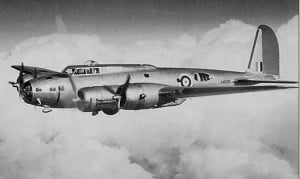Today we're excited to share with you the latest pick from our champion stock picker, Bill Patalon. He's calling it the ultimate "Rocky Balboa" stock - one that has defied the odds time and time again. Bill's been keen on this stock since 2011, when he first recommended it to his readers. Those who listened to him have enjoyed gains of over 157%. And Bill can't wait to share this one with you again. Now, here's Bill...
I'm the Executive Editor here at Money Morning, and I'd like to tell you a story.
I'm a big movie buff - movies of all kinds.
You know, classic movies like "Gone with the Wind." Black-and-white movies like "Inherit the Wind." War movies like "The Battle of the Bulge."
And I have to admit... I've got kind of a guilty pleasure with the "Rocky" movies.
You know the ones I'm talking about.
The boxer from Philadelphia, kind of the down in the mouth, hard-luck guy. You know, beats up people for a living then gets a shot at the title. Does really well, doesn't win. But even with that great showing, nobody takes him seriously.
So he gets another shot - this time he wins!
Still nobody takes him seriously.
And all these other ensuing fights follow...
He gets dropped, he comes back, he wins. Each time he gets dropped, everybody wants to write him off.
Well, there's a company that has the same kind of syndrome: Boeing Co. (NYSE: BA).
This is a company that goes back to the Great Depression, to the early years of aviation.
And it just seems like nobody ever wants to admit this is a great company. Every time something happens, investors just want to abandon it - and it always comes back.
You know, you had the Dreamliner. It took longer to develop than anybody expected it to - the stock sold off. Boeing made it happen; it's a successful airplane now. They got it on the market. The plane is flying.
Donald Trump says, "Hey, you know what? I'm not going to pay all of this money for Air Force One," which, by the way, Boeing builds. The stock sells off. Boeing comes back.
This is a company that comes back time and time and time again. It's a quality that is ingrained in its corporate DNA.
And let me tell you a story that shows this...
Don't Count This "Rocky Stock" Out
So here's Boeing, you know, 1934.
One of their executives, named Claire Egtvedt, is sitting one day when he gets this circular from the Army Air Corps. It wasn't the independent Air Force at the time, it was part of the Army.
Just Released: These "Second Salary" Plays Could Make You and Your Grandkids Rich
They're asking for the airplane companies in the country to design a new bomber for the Air Corps. They wanted it to be a multiengine bomber. And Egtvedt looked at this...
Again, you've got to think about this. You know, the company is on the ropes a little bit. They are really having trouble. They've had a bunch of flops. They need a winner -- they need to score.

And he said, "Well, I wonder," thinking to himself...
"Multiengine usually means two engines. But I wonder if four engines would be better."
So he sent the engineers to work. He made this company decision that they were going to go forward with this new airplane. It was called the 299 - and it was gorgeous.
I mean, when it rolled out of the hanger for the first time, people looked at it and were stunned.
Four engines was one of the biggest airplanes of its time. Huge wingspan. This glistening, polished aluminum skin. Bristling with gun turrets.
One reporter who looked at it at the time was so awestruck that he wrote the airplane, the 299, was a "veritable flying fortress" - and the name stuck.
Today, we know the plane as the B-17. And we also know that it was one of the most important airplanes of World War II.
Unfortunately, to win this contract, to win this competition, the Army Air Corps was holding this fly-off in Dayton, Ohio, where their big testing facility was.
This plane, the 299, was so advanced that it left Seattle and arrived at Dayton hours before it was even expected.
It was faster, could fly higher, and could perform better than the fighter planes that were supposed to attack it or defend against it at the time.
It was the most advanced airplane in the world.
You know, as Boeing put the plane, the 299, through its paces before the fly-off started, people were just amazed. There was no doubt at all who was going to win the competition once the fly-off started.
But then disaster struck.
[mmpazkzone name="in-story" network="9794" site="307044" id="137008" type="4"]
In a pre-fly-off kind of testing flight, the airplane started to climb very steeply. Everyone knew something was wrong.
It stalled, it plunged to the ground, crashed, and exploded.
Don't Miss: This tiny $5 company just passed each of the seven benchmarks in this secret stock-picking method. Learn how to get in before its revenue surges an estimated 4,709%. Read more...
Several of the crewmen were killed. A couple of others barely got out with their lives.
It turned out that some of the very advanced technology that was required to fly this airplane had kind of worked against it. Because again, this was still very early on and folks were kind of getting used to all this new technology.
So, the Air Corps had to award this contract to another company. But they'd seen enough to know that this was an airplane that they needed to have. So they also awarded a contract to Boeing to build a small number of these planes.
As it turned out, the plane was so advanced and so adaptable that they just kept ordering more and more and more. And that was the plane that helped us win the war in Europe against Hitler's Germany.
By the end of the war, we were mounting thousand-plane raids against some of the major German capitals, some of the major military targets. These planes were flying deep into Germany and back to England day after day after day.
And had Boeing not taken that chance, they wouldn't have built thousands of these airplanes.
They wouldn't have emerged as a winner.
They were counted out and once again they proved that they could rise above it all and beat expectations and win.
What's Next for Boeing
I recommended this stock back in 2011. This is a company I know really well.
You know, my father when I was growing up was an aeronautical engineer for Pratt and Whitney, and Hamilton Sundstrand. He designed controls for an attack bomber.
You know, he infused in me a lifelong love for aviation, for aviation history, for airplanes. I mean we fly radio control planes. We fly drones. We go to air shows. And, you know, my favorite museum on the face of the earth is the National Air and Space Museum in Washington.

So I know aviation. I know airplanes. I know Boeing.
This is a company that just keeps coming back over and over again.
I recommended the stock in 2011.
The stock is up over 157% since I recommended it.
And every time it sells off, every time something happens, I recommend it again.
You know, the Dreamliner battery thing. People abandoned the stock in droves. I wrote a column to my subscribers and said "buy this stock." Everybody that listened to me doubled their money from that point.
And you see it time and again...
The world economy has changed in a big way.
The nexus of global growth has shifted from the West to Asia.
If you go back to 1985 - you're talking about the United States, Europe, Japan - kind of the "Big Three." Those guys, all of us, accounted for about two-thirds of world economic growth.
Fast forward to today...
Now, the whole thing has flipped.
Two-thirds of world production has shifted to Asia and the "Big Three" now accounts for only 29% of that growth.
You know, so when you look at this...
I mean, this whole kind of shift in the world economy. That is like proof positive. It kind of makes it obvious that global travel is going to escalate. Companies in the West, they want the markets in Asia. They want access to all of those new consumers. And all of those markets there, they want access to our innovation, to our technology.
You know, so it's a mutually beneficial relationship and it's going to drive global travel.
It's going to drive the need for new routes, for new airlines, for new carriers. And that is all going to drive the need for all these new airplanes I'm talking about.
Here's a company that's got backlog - orders in its hand for 5,700 commercial jetliners. It's also got a big defense backlog. So it's got a backlog in business of $470 billion.
 If the company didn't get one more order for the next couple of years, it has enough business at current production rates to work for seven years.
If the company didn't get one more order for the next couple of years, it has enough business at current production rates to work for seven years.
This is business that's generating revenue, profits, record cash flow. This is a company that has a proven record of taking that cash flow and giving it back to shareholders in the form of dividends, stock buybacks, and other kinds of financial engineering.
How to Play Boeing Now
I advocate what I call the "Accumulate Strategy."
You buy a block of the stock now. You establish a foundation. You're in the stock. You're making money. And invariably, when these sell-offs happen...
You know, when people give up on Rocky, when they give up on Boeing, and they run to the sidelines, and the stock sells off...
Take a few dollars and throw it in the stock and buy more. Add to your position. You'll average down. The stock will come back. All of these powerful drivers that I've talked about will drive the stock higher and higher into record territories.
And over the next 20 years, as this whole airliner market explodes, so will your wealth.
I mean, you will cash in in a big way.
And, at the end, you'll be celebrating just like Rocky.
Editor's Note: Bill Patalon's got even more winners to share. One of his specialties is uncovering tiny, little-known stocks - often trading below $10 - and recommending them for peak gains as high as 663%... 628%... and 818%. He'll show you exactly how to use this method for yourself for a shot at exceptionally large returns on straight-up stocks - anyone can do it. Click here to see how it works.
Follow Money Morning on Twitter @moneymorning or Facebook.


